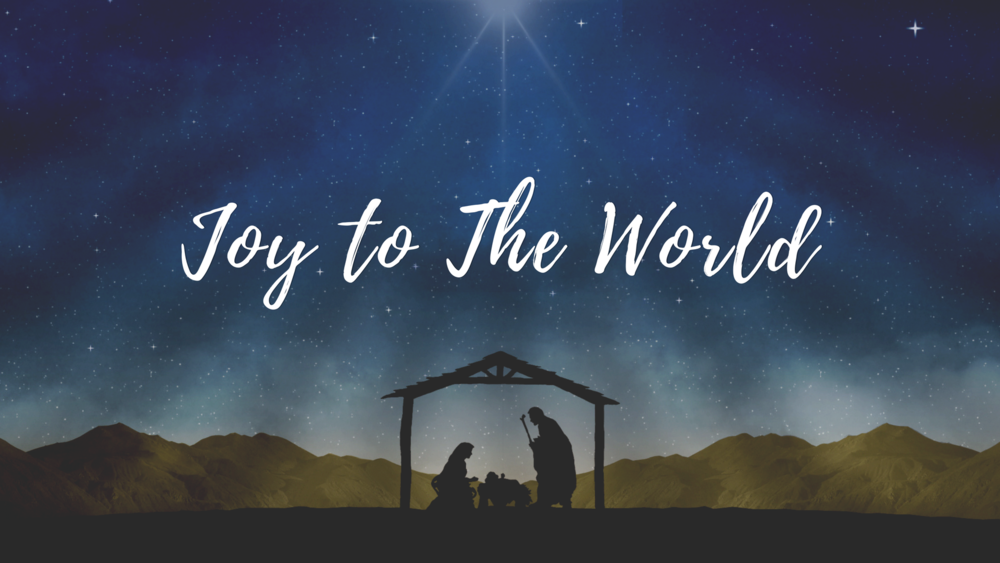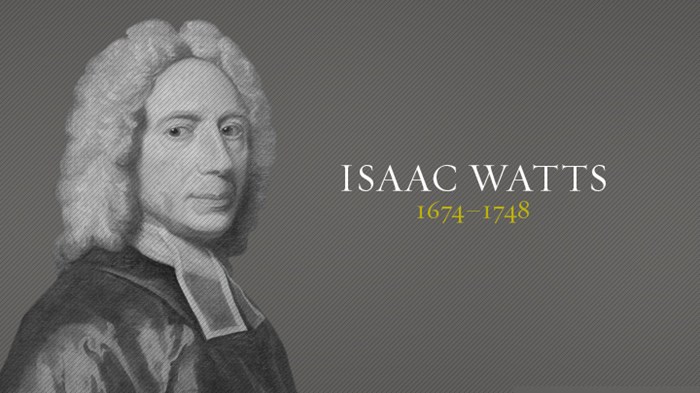
The Christmas season would
hardly seem complete without the singing of one of the most beloved carols of all
time, Joy to the World. The hymn's author, Isaac Watts (1675-1748),
is universally acknowledged as "The Father of English Hymnody"
because he wrote over 600 songs.
According to tradition,
Watts began writing verses as a child and showed signs of his prodigy early on.
In his teen years he complained that the congregational songs in church were
difficult to sing, not mention bland and boring for his taste. Watts' father,
who pastored a small congregation in Southampton, England, challenged the
budding musician after a Sunday service, “Well son, if you think you can why
don't you write some hymns that are better?”
Instead of feeling
defeated, Isaac took up his father's challenge. He showed his father a hymn
that he had written, Joy to the World.
Apparently, Mr. Watts had no inkling that his son was so gifted. He eagerly
presented his son's composition at church the next Sunday. It was so
well-received he was asked to write another for the following week. Watts wrote a new hymn every week for the
next four years. More than a century after Watts, in 1839 American composer Lowell
Mason, set Watts’ words to a new melody taken from Handel's Messiah.[1]

Interestingly, if you
notice the lyrics of the song, you will see nothing about shepherds, a manger,
wise men, angels, or any other element that we normally associate with the Christmas
story. The reason is that Isaac Watts did not write Joy to the World to be a Christmas song. The inspiration for this
song came from Watts’ study of Psalm 98 which he thought pointed forward to the
universal jubilation which would arrive as a result of Christ's Second Coming
and Millennial Kingdom. Just think about the lyrics for a moment.
Joy to the world! The Lord
is come!
Let earth receive her
King;
Let ev’ry heart prepare
Him room,
And heav’n and nature
sing.
Did the world receive Christ at His first coming? Not
according to John 1:11, “He came unto His own and His own people did not
receive Him.”
Joy to the earth! the
Savior reigns!
Let men their songs
employ,
While fields and floods,
rocks, hills, and plains
Repeat the sounding joy.
Nature did not rejoice when Christ came the first
time. There was darkness and earthquakes when He died on the cross (Matt.
27:45, 51). However, when He returns to set up His Kingdom the creation will
respond according to Isaiah 11:6-9.
He rules the world with
truth and grace,
And makes the nations
prove
The glories of His
righteousness,
And wonders of His love.
The nations haven’t yet recognized Jesus as King of
kings, but they will according to Phil 2:9-11, “Therefore God has highly
exalted him and bestowed on him the name that is above every name, so that at
the name of Jesus every knee should bow, in heaven and on earth and under the
earth, and every tongue confess that Jesus Christ is Lord, to the glory of God
the Father.”
Perhaps one day we will
sing this hymn one day in the Millennial Kingdom and every word of it will be
literally fulfilled. I hope you’ve made plans to be there. The way you gain
entrance into the Kingdom is by bowing and recognizing the Lordship of Jesus
Christ today. -DM
[1]
Robert J. Morgan, Come Let Us Adore Him: Stories Behind the Most Cherished
Christmas Hymns (Nashville, TN: Countryman, 2005), 20-21.
No comments:
Post a Comment